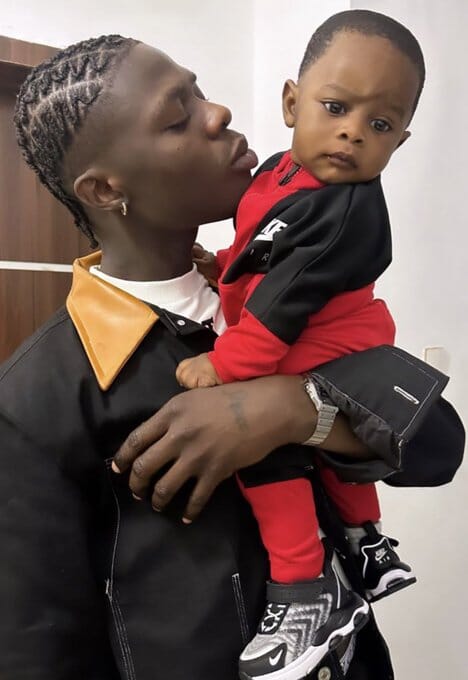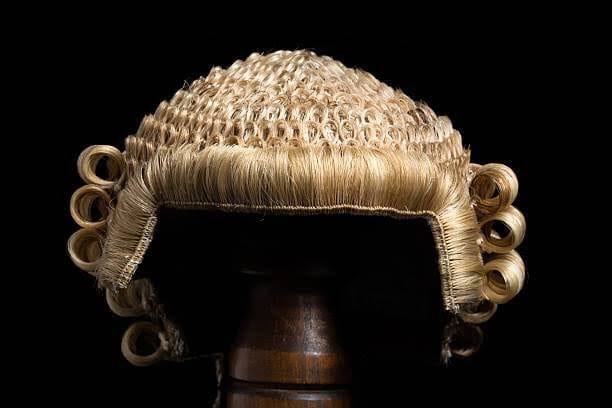In a dramatic turn of events that has reignited public interest in the tragic story of late Nigerian singer Ilerioluwa Oladimeji Aloba, popularly known as Mohbad, a Magistrate Court in Ikorodu, Lagos State, has issued an order for DNA testing on his young son, Liam Aloba. This decision, handed down on September 2, 2025, comes nearly two years after Mohbad's untimely death in September 2023, and underscores the ongoing family feuds, suspicions, and legal battles that have plagued his legacy. The court's ruling aims to settle once and for all the contentious question of Liam's paternity, a issue that has divided the Aloba family and sparked widespread debate across Nigeria's social media landscape and beyond.
Mohbad, the talented Afrobeat artist behind hits like "KPK (Ko Por Ke)" and "Feel Good," passed away at the age of 27 under mysterious circumstances. His death sent shockwaves through the Nigerian entertainment industry, prompting allegations of foul play, bullying by his former record label Marlian Music, and even calls for a thorough investigation into the events leading up to his demise. In the midst of this chaos, Mohbad's father, Joseph Aloba, emerged as a vocal figure, demanding justice for his son while also casting doubt on the paternity of Liam, who was born just months before Mohbad's death. Joseph Aloba's insistence on a DNA test has been a recurring theme, with him previously stating that he would not allow Mohbad's burial until the child's biological connection to his son was confirmed.
The paternity dispute traces its roots back to the immediate aftermath of Mohbad's death. Joseph Aloba, a carpenter by trade and a devout Christian, has publicly expressed skepticism about Liam's lineage. In interviews and social media posts, he claimed that Mohbad himself had doubts about the child's paternity during his lifetime, allegedly due to strained relations with his wife, Omowunmi Cynthia Aloba. These allegations were fueled by rumors of infidelity and the rapid timeline of Liam's birth. Mohbad and Omowunmi had been in a relationship for several years, but the pregnancy announcement came amid reports of marital discord. Joseph Aloba argued that without a confirmed DNA link, issues of inheritance, family welfare, and even the emotional closure for the Aloba clan could not be resolved. He emphasized that the test was not just about biology but about protecting the family's name and ensuring that any potential heirs were legitimately tied to Mohbad's estate, which includes royalties from his music catalog and other assets.
Omowunmi, Mohbad's widow, has faced immense scrutiny since her husband's passing. Portrayed by some as a grieving mother and by others as a figure shrouded in suspicion, she has maintained that Liam is indeed Mohbad's son. In the court proceedings, however, her legal team, led by Kabir Akingbolu, chose not to oppose the DNA test application. This non-opposition was a pivotal factor in the magistrate's decision, as it removed any immediate barriers to proceeding with the tests. Court documents reveal that Omowunmi's stance was pragmatic; by not contesting, she avoided prolonging the legal battle, potentially allowing her to focus on raising Liam away from the public eye. Critics, however, speculate that her compliance might stem from confidence in the results or a desire to put the rumors to rest definitively.
The court's order, presided over by Magistrate Adefisoye Sonuga, is comprehensive and designed to ensure transparency and accuracy. Under the Family Court of Lagos State (Civil Procedure) 2012 and the Magistrate Courts (Civil Procedure) Rules 2009, the magistrate directed that two separate DNA tests be conducted: one at an accredited facility in Nigeria and another abroad. This dual-testing approach is intended to eliminate any doubts about the reliability of the results, given the high stakes involved. The Chief Medical Officer or Pathologist at the Military Hospital in Yaba, where Mohbad's remains are preserved, has been authorized to extract necessary samples such as tissue or hair from the late singer's body. Both parties: Joseph Aloba and Omowunmi or their representatives must be present during the sample collection to maintain chain of custody and prevent any allegations of tampering.
ADVERT
This ruling didn't come without its share of legal arguments. Joseph Aloba's counsel, Augustine Adegbemi, presented a compelling case in the application, highlighting that paternity remains a "live issue" when determining welfare, maintenance, and inheritance rights. He stressed that uncertainty could lead to long-term emotional and financial harm for the child, who is now approaching his third birthday. The court agreed, noting that resolving this matter expeditiously was in the best interest of all involved, particularly Liam, who has been thrust into the spotlight through no fault of his own. The case has been adjourned to November 11, 2025, for further proceedings, including the presentation of the DNA results.
Beyond the courtroom, this development has stirred a whirlwind of opinions and insights across Nigeria. Social media platforms, especially X (formerly Twitter), have been abuzz with reactions. Supporters of Joseph Aloba argue that his pursuit of the truth is justified, pointing to cultural norms in Yoruba tradition where paternity confirmation is crucial for family lineage and ancestral rites. They view the DNA test as a necessary step to honor Mohbad's memory and prevent any potential fraud in estate distribution. On the other hand, critics accuse the elder Aloba of exploiting his son's death for personal gain, suggesting that his demands are driven by greed rather than genuine concern. Feminist voices have rallied around Omowunmi, decrying the patriarchal undertones of questioning a widow's fidelity without concrete evidence.
Insights from legal experts shed light on the broader implications. In Nigeria, where DNA testing is increasingly common in family disputes, this case highlights the intersection of modern science and traditional values. According to family law specialists, paternity tests can resolve inheritance battles under the Administration of Estates Law, ensuring that assets are distributed fairly. Mohbad's estate, estimated to be worth millions in naira from music streams and endorsements, could be significantly impacted by the results. If Liam is confirmed as Mohbad's son, he stands to inherit a substantial portion, potentially under Omowunmi's guardianship. Conversely, a negative result could lead to further legal challenges, including disinheritance claims and even custody battles.
The Mohbad saga also reflects deeper issues within the Nigerian entertainment industry. Mohbad's death exposed allegations of exploitation, with former label boss Naira Marley facing accusations of harassment and assault. Investigations into his death have dragged on, with autopsies inconclusive and witnesses reluctant. The paternity dispute adds another layer, suggesting that personal relationships were as turbulent as his professional ones. Fans reminisce about Mohbad's lyrics, which often touched on struggles, betrayal, and family themes that now seem eerily prophetic.
ADVERT
From a psychological perspective, the ongoing drama could have lasting effects on Liam. Child welfare advocates warn that public scrutiny might traumatize the young boy, emphasizing the need for privacy post-testing. Public opinion is divided: some see the court's order as a victory for truth, while others lament it as unnecessary sensationalism prolonging the family's grief.
Financially, this case underscores the importance of estate planning for celebrities. Mohbad, like many young artists, reportedly died without a will, leaving his affairs in disarray. Experts advise that DNA tests in such scenarios prevent fraudulent claims and ensure equitable distribution.
As Nigeria awaits the DNA results, the story of Mohbad continues to captivate. It serves as a cautionary tale about fame's dark side, the fragility of family bonds, and the quest for closure in tragedy. Whether the tests confirm or refute paternity, one thing is clear: Mohbad's legacy musical and personal will endure, shaped by the truths unearthed in this legal battle.
In the end, the court's decision is not just about biology; it's about justice, legacy, and healing for a family torn apart by loss and doubt. As the November hearing approaches, all eyes remain on the Aloba family, hoping for resolution in a story that has gripped the nation for far too long.
Read More
- Lagos Lawyer Sues Governor Sanwo-Olu For Allegedly Violating Constitutional Rights By Blocking Him On X
- Aliko Dangote and Ethiopia Seal $2.5 Billion Fertilizer Plant Deal to Boost Food Security
- Why Dangote’s $3 Billion Fertilizer Investment May Not Benefit Nigeria as Much as Africa
- Lady Ordered to Pay ₦450K Over Transport Fare Breaks Silence

